


OBTAIN 3 QUOTES FOR YOUR HEAT PUMP OR AIR-CONDITIONING
Heating & Cooling Systems from HVAC Contractors Winnipeg

With its location in the Canadian Prairies, Winnipeg has a humid-continental climate with warm and humid summers and severely cold winters.
In fact, winters here are the coldest and driest time, with an average temperature of around −16.4 °C with occasional drops to −40.0 °C.
With that in mind, HVAC systems are a huge priority for many residents to ensure comfort and safety during winter and summer months.
Aside from comfort, HVAC systems also significantly affect the monthly energy bills you pay. Hence, it is critical that you maintain energy-efficient air-conditioners or furnaces.
Our HVAC partners serving Winnipeg will be happy to help you with your heating or cooling needs, whether you need repairs or a replacement.
No matter where you are, we have HVAC partners available to serve you:
Steinbach | Oakbank |
Portage la Prairie | Stonewall |
Selkirk | Carman |
Beausejour |
Find out what your best options are by learning more about HVAC systems and compare FREE and NO COMMITMENT quotes using our short online form today.
Air-conditioning systems tailored to your budget
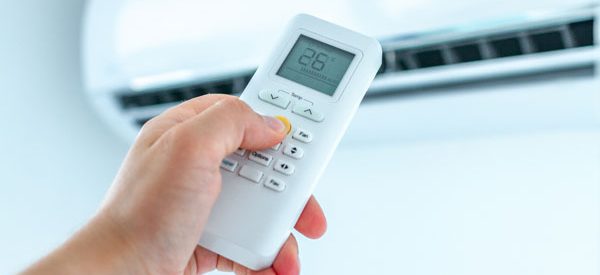
Is your home ready for the summer heat?
In the summer, elevated air temperatures and high relative humidity combined make the indoor environment uncomfortable. With a reliable air-conditioner, you can create a more comfortable home temperature and enjoy your home more.
However, like most appliances, air-conditioners need regular maintenance. There will also come a time when they break down or quit working.
Air-conditioners also take a beating when it has been in use for 10 years or longer. Know that old air-conditioners use a lot more energy than necessary, causing your energy bill to rise significantly.
Save money and increase your comfort level with energy-efficient air-conditioners. They can greatly improve your quality of life and reduce operating expenses so you have more money to spend.
Talk to a reliable HVAC contractor in your area who can recommend solutions to your cooling needs.
Central air-conditioning systems
Winnipeg residents want high-efficiency central air-conditioners for lower energy consumption with more cooling abilities.
Central air-conditioners cool the whole home. It has a large compressor and outdoor coil placed outdoors connected using refrigerant lines to an indoor coil in the furnace. The same duct system works for cooling and heating.
A central air-conditioning system makes use of energy to take away the heat. The most common types use a compressor cycle much like refrigerators work, transferring heat from the home to the outdoors. Heat is absorbed and released as the refrigerant works back and forth from liquid to gas states.
Customers looking to buy a new central air-conditioner should consider the highest possible SEER (Seasonal Energy Efficiency Ratio). Units with a high SEER are energy-efficient (savings in energy). You can find systems with SEER ranging from 13 to 20+ but units with a SEER of 18 already provide moderate to high levels of energy-efficiency.
Central air-conditioners provide optimal performance and savings for larger homes.
Replacing a central air-conditioner
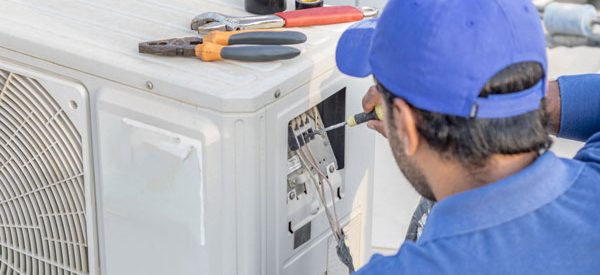
If your system is 10 years or older, there is a high probability that it is no longer working efficiently. Most 10-year-old systems have a lower SEER (between 7 to 8) compared to newer models in the market with much higher SEER.
A central air conditioner has a life expectancy of 15 years or more. When the unit frequently needs repairs, a replacement may be more cost-effective and practical.
More efficient systems pay off over time with lower utility bills, warranties, and higher reliability and convenience.
If you are currently using an oil or electric furnace or a conventional gas furnace and you pay $1,000 or more annually for heating, you should think about installing a ground-source or air-source heat pump rather than a central air-conditioning system.
Adding a heat pump to your furnace can give you more savings and their SEER ratings are competitive with central air-conditioners. However, heat pumps provide the additional benefit of savings in heating costs during winter.
Find out more by getting FREE and NO-OBLIGATION quotes to compare using our short online form!
Ductless Air conditioners
Ductless air conditioners, also called mini split air conditioners, are ideal for homes without existing ductwork.
Mini splits, just like central air conditioner units, have an outdoor unit that houses the compressor and heat exchanger and an indoor unit for every cooling zone inside the house.
The area that can be supported by a mini split air conditioner depends on the size of the outdoor unit. A copper piping connects them together through a hole about 3 to 4 inches in diameter. The compressor and heat exchanger can be installed in the rear of the house where it can be unobtrusive.
A qualified HVAC contractor can help you determine the best size of unit required for your home and where to place your ductless air conditioner.
How to look for the best air-conditioner for your home
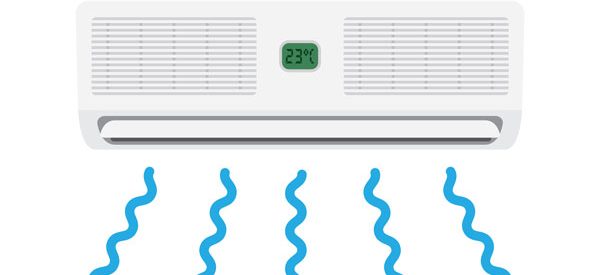
If you are in the market for an air conditioner, it is very likely that your primary reason is comfort. Cost is also a major consideration. Thus, you may be interested in calculating the cost of operating an air conditioner to see if it is a worthwhile investment.
You can also compare the performance and cost of various equipment with similar cooling capacities before you decide.
What factors affect the cost of operating an air-conditioner?
- Your home’s location
- Local weather conditions year to year
- SEER rating of the air conditioner
- Air conditioner’s size in relation to the home’s cooling load
- thermostat settings
- number of people living in the house
- lifestyle – are windows open or closed, window shading, types of appliances and frequency of use, lighting
- cost of electricity
Choose a central air conditioner with as high a SEER as possible. Look for an Energy Star qualified central air conditioner with a minimum SEER rating of 12 or 13 for a split system within your budget.
Look for a central air conditioner capacity or size that meets the calculated cooling load of your home. An oversized unit will have short operating cycles and will lead to a cold and damp house. An undersized unit will not have sufficient capacity to achieve a comfortable temperature during very hot days. Buying the wrong size of air-conditioner will negatively affect your monthly energy use and decrease your system’s efficiency.
A reputable and experienced HVAC contractor can give you reliable recommendations in terms of size and cooling load required.
Average price of air-conditioners in Winnipeg
| Type of Unit | Description | Average Price |
| Higher-end models | Top-of-the-line and premium brands, with complicated installation or additional labor or parts | $4,200 to $4,500 |
| Mid-range to standard models | Average high-efficiency models, with standard installation | $3,000 to $4,000 |
| Lower-end components | Limited warranty on parts and labor Lower efficiency of the unit | below $3,0000 |
Most Popular air-conditioners in Winnipeg
There are several brands and models of air-conditioners available in Winnipeg. Each one offers unique properties, warranties, and pricing.
Check them out to find the best match for your needs. It is advantageous to seek advice from a reputable HVAC contractor.
Brand | Pros/Cons | Average Cost of unit with installation |
| Lennox | Offers higher-end air-conditioners, slightly high in the market. (Signature Collection, Elite Series, and Merit Series) With Energy Star ratings Lennox parts cost more to replace or repair than other brands Parts are not universal and can be difficult to obtain | $4,000 to $7,800 (depending on the size and model) |
| Trane | Known to make dependable and high-quality air conditioners As a premium brand, it is on the expensive side Offers high efficiency, durability, and reliability Offers SEER of 18 to 22 Each unit has a base limited warranty for parts replacement due to manufacturer’s defect. Warranties range from 1 to 20 years. | $4,000 to $10,000 |
| Carrier | Considered as one of the best brands in the market with global recognition. Offers impressive technologies such as Silencer System and Greenspeed Intelligence Limited middle and economy models | $3,400 to $6,000 |
| Keeprite | More affordable in price compared to other brands With impressive SEER ratings for an economy tier unit Offers entry-level to deluxe series Limited features | $2,800 to $3,200 |
| Goodman | Offers units with SEER ratings of 14 to 19 Units have relatively good warranties Good noise level Has a small line-up of units Same as Daikin and Amana models | $2,700 to $6,900 |
When is the right time to purchase an air conditioner?
It is best to buy an air-conditioner before or after the summer. HVAC contractors will have more time to take care of your needs when the demand is low. The prices will also be generally lower, with potential discounts available.
Government Rebates to help finance your HVAC upgrades
Reliable HVAC contractors can help you take advantage of government rebates for your HVAC upgrades.
The Metis Energy Efficiency Program offers rebates for low-income homeowners and renters who wish to make their homes more efficient. Below are some of these offers available:
- Free home energy assessments
- Free insulation) for attics, walls, and basements
- Natural gas furnace upgrades for $9.50 a month payable in 5 years
- $3,000 rebate for the purchase of a high-efficiency natural gas boiler
- Free LED lights, showerheads and aerators, air-sealing products, and other energy-efficient products
$150 rebate on eligible HRV control and $50 rebate on eligible ENERGY STAR smart thermostats.
Choosing the best AC Installation & Replacement
It can be overwhelming to choose from various contractors for your AC replacement or installation. Keep in mind that your choice is a key factor in a successful project in terms of efficiency and price.
Below are some tips that can help you choose a good HVAC contractor:
- Obtain multiple quotes from HVAC contractors in our network to compare. All of our partners are verified and screened for qualifications, license, insurance, and reputation.
- Study the quotes you receive after filling out our short form and ask questions from candidates.
- Make sure that contractors bidding for your project have correctly calculated the cooling load and taken the time to explain to you.
- Ensure that the contractors bidding for your project have studied the existing ductwork and distribution system in your house
- Make sure that the contractors offer you several options for brands and SEER so you can choose based on your needs and budget.
- Your selected contractor should offer a warranty for the installation
Heat Pumps vs. Furnaces: Best solution for heating
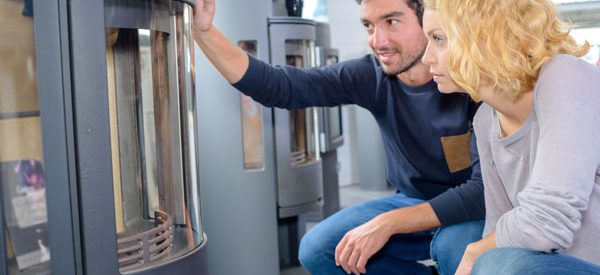
A heat pump or a furnace can heat your home but they work differently. This section will help you determine which heating system is right for your home.
How does a heat pump work?
A heat pump is a component of a central heating and cooling system that uses outdoor air to heat and cool a home. This means that a heat pump acts as an air conditioner in the summer and as a heater when the weather is cold. This makes a heat pump a very flexible and worthy investment. It is also energy-efficiency.
In winter, a heat pump extracts heat from the outside air or ground and distributes the same throughout the house. In summer, it extracts hot air inside the home to create a cool indoor temperature.
Disadvantages of using a heat pump
You can use a heat pump only when the temperature is around -5 to -10 degrees C before your furnace needs to augment the heat in your home.
How does a furnace work?
On the other hand, a furnace converts fuel into heat that is distributed throughout the house. It has 4 principal parts – a burner for burning and delivering fuel, 2) a heat exchanger, 3) a blower, 4) a flue that eliminates gas by-products. You can choose gas or oil systems, depending on which is more convenient in your area.
Compare Cost, Energy-efficiency, Installation, and Air Quality
In determining which system is better for your home, you can consider cost, energy efficiency, installation and air quality.
Cost of heat pump or furnace installation
The cost to install a furnace, heat pump, or a dual fuel system will be affected by your existing set-up. Some homes may not have available natural gas which makes it more ideal to choose an air-conditioner and furnace installation. Homes that are not wired for additional heating from a heat pump may have added costs. An HVAC contractor is your best resource for determining which type of system is ideal for your home.
The average price for a new furnace, including installation, is around $2,500. A high-efficiency furnace with 2 stages can cost from $3,000 to $5,000.
On average, installing a heat pump costs from $5,600 to $7,200, depending on the size and type of system you choose. Mini-split systems can cost as much as $14,000 while geothermal and solar systems cost from $6,000 to $40,000.
Energy Efficiency
A heat pump can transfer 300% more energy than it utilizes. A furnace is 95% energy-efficient. Because heat pumps use electricity, you can save on fuel. In a majority of temperate climates, heat pumps are efficient in serving as a heating and cooling system.
Air Quality
You can maximize your home’s air quality by using air cleaner or fresh air ventilators.
Generally, heat pumps use various ductless units in the home with different filters to eliminate irritants, pollutants and allergens. HVAC contractors also provide cleaning services for heat pumps. Furnace air filters should also be cleaned and replaced periodically to minimize dust and other pollutants.
Level of Comfort
Air from heat pumps is not as hot as air from a gas furnace. It warms your home but it blows a bit cooler. Some people may not be satisfied with that. Heat pumps circulate naturally humid air so it does not cause skin dryness as much as hot air from a furnace.
Lifespan and Ease of Maintenance
Gas furnaces have a longer life span than heat pumps. When maintained properly, a furnace can last 20 years while a heat pump has a life span of 15 years.
Because gas furnaces are used only for a few months each year, the required maintenance is less than a heat pump.
Not all homeowners want the same thing when it comes to their heating system. Areas with bitterly cold winters and temperatures often below freezing may be more suited to a furnace because outdoor temperatures are not used to convert heat.
In Winnipeg, many homeowners use heat pumps to reduce the use of their furnace and air conditioner and save on using oil or electric furnaces.
Ask a local HVAC contractor in our network for the best heating solutions for your home today!
Just fill out the form and receive FREE and NO COMMITMENT QUOTES to save time and money.
Boiler Systems for Heating and Hot Water supply
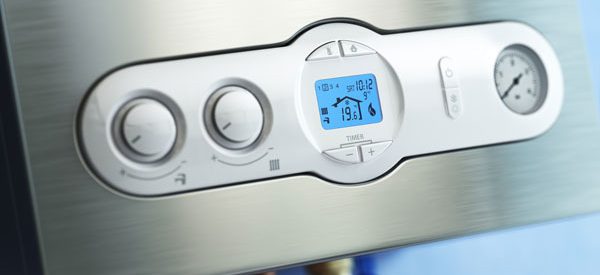
A boiler system is an alternative system for heating the home. It uses steam or hot water to warm the house. It is also called a hydronic system.
Boiler systems typically use natural gas, oil, or propane as the fuel source to heat water but you can find electric systems, too.
Combi-boiler systems serve the dual function of heating the home and giving the home its hot water supply.
The main alternative to using a boiler system is a furnace. They work similarly but boilers distribute hot water using pipes and radiators while furnaces directly heat air and distribute it around the house.
An efficient boiler system is a good method to warm your home in Winnipeg. Conventional boilers have large storage tanks for hot water so that your house will not run out of supply of hot water and the temperature remains at a comfortable level. You can heat the home, take a hot shower, do the laundry and other tasks without worrying about losing hot water halfway.
Combi-boilers are affordable and easy to install, with low upfront costs for the equipment and installation fees.
What is the cost of installing a boiler system?
The cost of a boiler depends on various factors but the average price is from $3,000 to $5,000 for a combi-boiler of more if you choose a conventional boiler.
Get the best Prices for heating and cooling systems
An air-conditioning system, furnace, or heat pump is a sizable investment to make for your home. You want to make sure you get the right type of system, price, and a reliable contractor to do the job.
After all, your HVAC system directly affects the quality of your life, your finances, and even the value of your home!
Make sure to compare multiple HVAC contractors in your area and get a variety of offers in terms of type, brand, and price for your cooling or heating system.
Just fill out the form on this page and get connected easily with our reliable HVAC partners serving your area!
These quotes are absolutely free of charge and have no commitment on your part!
We can help you find a reliable HVAC contractor to help you with your project.
Just fill out the form below and get ready to compare offers to save time and money.
Comments are closed.



OBTAIN 3 QUOTES FOR YOUR HEAT PUMP OR AIR-CONDITIONING
Copyright© 2024 Compare Home Quotes.
Oolong Media






